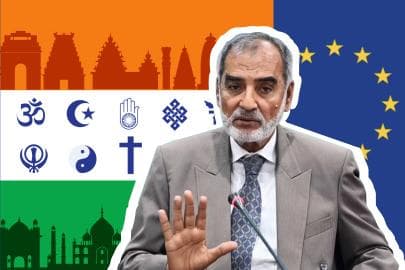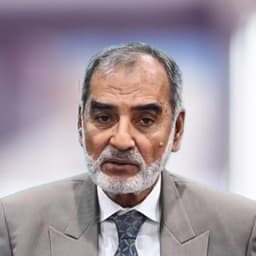Deciphering Europe's Multicultural Quandary
European nations can seek inspiration from India, which has successfully upheld harmonious coexistence of diverse faiths and cultures despite challenges

In the midst of debates over the compatibility of Shariah-compliant principles with the foundational values of the European Union, it is imperative that we delve deeper into the complexities of this issue. The question that arises is whether religion and culture can truly be treated as interchangeable entities. Religion, after all, constitutes a set of principles rooted in faith, guiding individuals' lives and providing a moral compass. Culture, on the other hand, largely evolves from social interactions and traditions specific to a region or community. While there can be overlap between the two, they are distinct facets of human society.
Distinguishing Religion from Culture
Religion, as many scholars and religious leaders affirm, is deeply rooted in faith and spirituality. It offers a guiding framework for individuals, shaping their moral values and ethical choices. This distinction is supported by numerous surveys conducted across Europe, which consistently demonstrate the enduring significance of religious beliefs. In recent years, a Eurobarometer survey in 2021 revealed that a substantial percentage of the European population identifies with various religious affiliations, including Christianity, Islam, Hinduism, Buddhism, and others.
In contrast, culture is a dynamic product of social interactions, traditions, and customs that evolve over time. It plays a significant role in shaping societal norms and behaviours. Ethnographic research conducted in various European nations underscores the influence of culture on practices and traditions, further highlighting the distinction between religion and culture.
The Challenge of Multiculturalism in Europe
Today, Europe grapples with the challenge of accommodating diverse cultures within Western society. This challenge is supported by empirical data reflecting the complexities of cultural diversity. Reports from the European Social Survey and other sources shed light on ongoing debates surrounding immigration policies, social integration, and the preservation of national identities. These debates underscore the need for a thoughtful and inclusive approach to multiculturalism.
Moreover, the very foundations of modern European civilization, rooted in multicultural and liberal values, are facing significant challenges in countries such as Italy, France, Denmark, Germany, the Netherlands, Hungary, and others. These observations are substantiated by concrete evidence, including electoral trends and political discourse that indicate the rise of nationalist and anti-immigrant sentiments in several European nations.
Drawing Lessons from India
In search of potential solutions, European nations might find inspiration in Asian countries, many of which serve as a compelling model for the harmonious coexistence of diverse faiths and cultures. For instance, nations like India and Indonesia managed to maintain a functional multi-faith and multicultural society despite political upheavals and challenges. Consequently, for centuries, India has been has been a multi-faith society where Hinduism, Islam, Sikhism, Christianity, Buddhism, and Jainism have peacefully coexisted. Though, some worrisome incidents have occurred in recent times.
Challenges and the Path Forward
It is crucial to acknowledge that multi-faith societies come with their own set of challenges. The evolving global landscape casts shadows on the life of nations, and diversity, while a reality, requires ongoing efforts to foster amity and understanding among diverse communities. Initiatives promoting interfaith dialogue, cooperation, and cultural exchange are essential steps toward peaceful coexistence.
The intricate relationship between religion, culture, and multiculturalism in contemporary Europe calls for a nuanced and comprehensive approach. The lessons learned from diverse societies serve as valuable guides, emphasizing the potential for peaceful integration and understanding in a world marked by diversity. With the right measures and inclusive policies, Europe can navigate the complexities of its multicultural landscape while upholding its core values of unity and diversity.



































